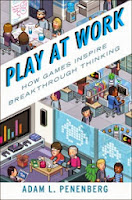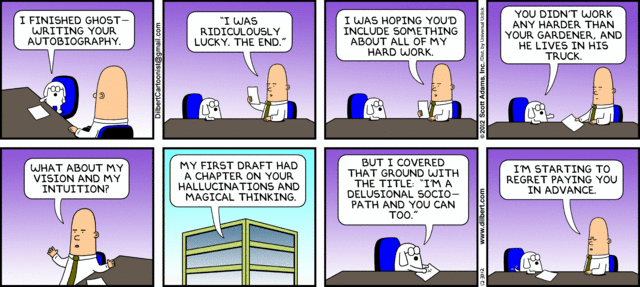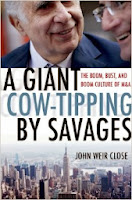My weekly book post on
s+b's blog is about an insider's view of teaching at HBS:
The Management Stylings of Harvard Business SchoolWe’ve been treated to several insider accounts of Harvard Business School (HBS) over the years.
Robert Reid’s
Year One: An Intimate Look Inside Harvard Business School, Source of the Most Coveted Advanced Degree in the World (William Morrow, 1994) and Philip Delves Broughton’s
Ahead of the Curve: Two Years at Harvard Business School (Penguin Press, 2008) covered the experience from the student’s perspective. But Michel Anteby’s
Manufacturing Morals: the Values of Silence in Business School Education (University of Chicago Press, 2013) is the first I’ve seen that describes HBS from a professor’s point of view.
Anteby, an associate professor of organizational behavior, turns his experience of being hired by and teaching at HBS into an ethnographic study that explores how the “way we do things around here” is communicated to the faculty—a highly skilled and highly independent workforce. In doing so, he’s written a book that works on several levels.
First,
Manufacturing Morals is a fun read. It’s packed with stories about what it’s like to teach at a leading (arguably, the leading) business school. As you might expect, the standards for faculty at HBS are high, and everything from how pictures get hung on office walls to what professors wear reinforce those standards.
Second, the publication of Anteby’s study is timely in light of
Jodi Kantor’s New York Times article about the ongoing effort to promote gender equality within the school. It’s interesting that with all the attention paid to how things are done at HBS, its aggressively masculine student culture, the performance gap between male and female students, and the dearth of tenured female professors has only just begun to be addressed.
Finally, Manufacturing Morals is useful as a guide to creating corporate culture via “vocal silence.” Anteby finds examples of vocal silence at work throughout HBS, and thinks it can be a particularly effective means for communicating organizational mores. I asked him to explain the seemingly oxymoronic concept, and how companies can use it...
read Anteby's response here





















